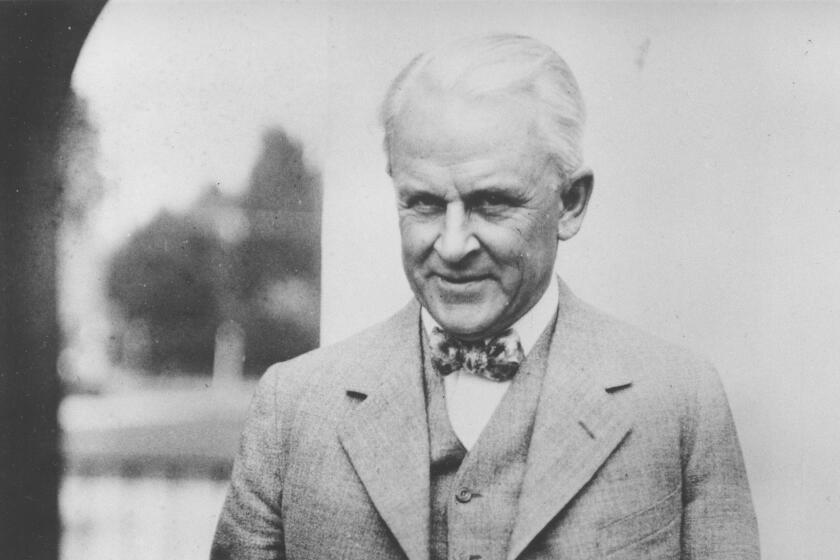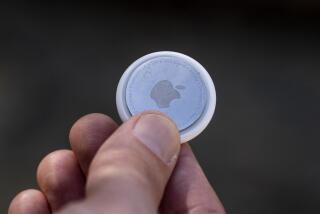Apple wins a new trial in $1.1-billion Caltech patent case

- Share via
Apple Inc. and Broadcom Inc. will get a new trial on damages in an infringement case over Caltech patents on Wi-Fi technology, after a U.S. appeals court vacated a $1.1-billion verdict the school won in 2020.
A two-tier award of damages of $270.2 million against Broadcom and $837.8 million against Apple that involved different royalty rates from each company is “legally unsupportable,” the U.S. Court of Appeals for the Federal Circuit in Washington ruled. The January 2020 verdict was one of the largest jury awards in a patent case in U.S. history.
The court also affirmed the jury finding that Apple and Broadcom infringed two CalTech patents, but ordered a new trial of infringement on a third patent. One of the three judges on the panel said he would have thrown the whole case out, believing none of the patents were infringed.
Having traveled the difficult road of coming to terms with racism in its own past, Caltech on Friday said it would remove the names of Robert A. Millikan and five other important figures in its history from campus.
The case was remanded to a court in Los Angeles for a new trial on infringement of one patent and to determine how much Broadcom and Apple should pay.
Caltech said it was pleased that the validity of the patents and part of the infringement findings were upheld.
“This is recognition of Caltech’s inventions in the field of data communications, which are now widely used in Wi-Fi products because they significantly improve the quality, bandwidth, and range of wireless data transmission,” the school said in a statement Friday. “We are confident that the value of the patents will be fully recognized at the damages retrial.”
Officials with Broadcom and Apple didn’t respond to queries seeking comment.
The high damage award was based in large part on the broad range of Apple products that were accused of using the university’s inventions for wireless data transmissions. The case targeted Broadcom chips and any Apple smartphone, tablet or computer that has one.
Caltech argued that it would have negotiated two licenses — one with Broadcom for chips that weren’t sold to Apple, and then with Apple for the devices that included Broadcom chips “at a vastly different royalty rate,” according to the opinion.
“The mere fact that Broadcom and Apple are separate infringers alone does not support treating the same chips differently at different stages in the supply chain and does not justify submitting such a two-tier damage theory to the jury,” the Federal Circuit ruled.
“In the absence of a compelling showing otherwise, a higher royalty is not available for the same device at a different point in the supply chain,” according to the court.
In an unrelated case involving patent claims against Apple, a different three-judge Federal Circuit panel ordered a new trial on damages in an $85.23-million verdict won by Quarterhill Inc.’s Wi-Lan over a way to allocate bandwidth in wireless communications.
The court ruled that Wi-Lan’s damages expert used a “flawed” methodology that was “untethered to the facts of this case,” but also that the trial court erred in ruling that Apple iPhones with Intel Corp. chips had a perpetual license to the Wi-Lan patent.
The cases are California Institute vs. Broadcom, 20-2222, and Apple Inc. vs. Wi-Lan Inc., 20-2011, both in the U.S. Court of Appeals for the Federal Circuit (Washington).
More to Read
Inside the business of entertainment
The Wide Shot brings you news, analysis and insights on everything from streaming wars to production — and what it all means for the future.
You may occasionally receive promotional content from the Los Angeles Times.











